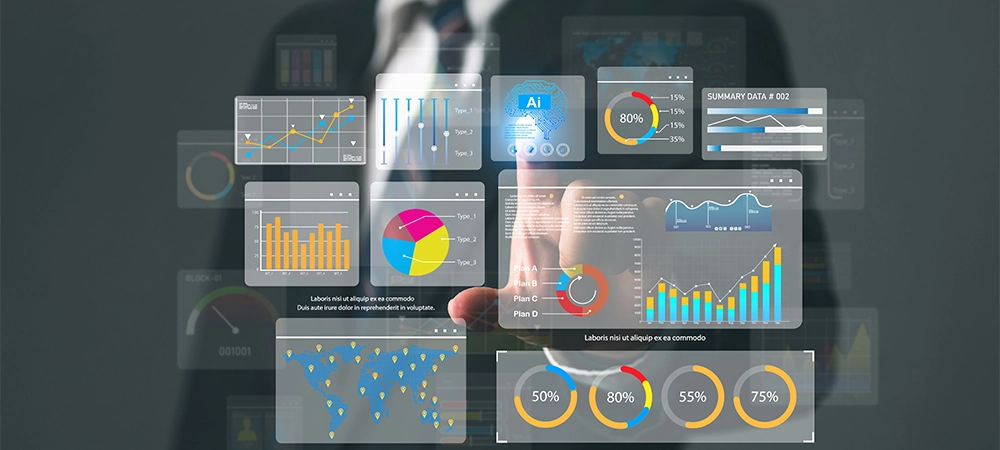Artificial Intelligence (AI) is reshaping various fields, and its impact on scientific research is nothing short of revolutionary. By enhancing data analysis, improving predictive modeling, and automating repetitive tasks, AI is significantly speeding up the pace of discoveries and enabling breakthroughs that once seemed far-off. In this blog, we’ll dive into the remarkable role of AI in scientific research, exploring its applications and future potential.
1. AI in Data Analysis and Management
Handling Big Data
In scientific research, large datasets are the norm. Traditional methods often struggle to manage and extract insights from this vast sea of information. That’s where AI shines. With powerful algorithms from machine learning (ML) and deep learning (DL), AI can identify patterns and reveal valuable insights from complex data—transforming disciplines like genomics, where it expedites the analysis of genetic sequences like never before.
Automating Data Collection
AI systems are also streamlining the collection of experimental data. By automating this process, researchers can reduce human error and significantly speed up their work. For example, AI-equipped microscopes can capture and analyze thousands of images in mere hours, a task that would take a human researcher far longer.

2. Enhancing Predictive Modeling
Simulating Complex Systems
In areas like climate science, where understanding intricate atmospheric processes is vital, AI enhances predictive modeling. AI-driven models can efficiently analyze historical data to forecast future climate scenarios. This level of accuracy aids policymakers in devising effective strategies for climate change mitigation and adaptation.
Drug Discovery and Development
The pharmaceutical sector is experiencing a transformation thanks to AI. By accelerating drug discovery, machine learning models can predict how various compounds will interact with biological targets. This capability streamlines the development process, allowing researchers to quickly identify the most promising candidates and focus their efforts where they are likely to yield results.
3. AI in Experimental Research
Robotic Automation
AI-powered robots are becoming invaluable in laboratories, performing repetitive tasks with precision and speed. These systems can work tirelessly, allowing for round-the-clock experimentation. For instance, they can rapidly conduct high-throughput screening of chemical compounds, paving the way for discovering new materials or drugs much more efficiently than traditional methods.
AI and Citizen Science
AI is also making science more accessible through citizen science initiatives. Platforms like Zooniverse empower non-experts to contribute to research by classifying data from images and audio recordings. AI algorithms pre-process this data, enabling volunteers to tackle more complex questions, thereby speeding up research in disciplines like astronomy and ecology.
4. Bridging Research Disciplines
Interdisciplinary Collaboration
AI promotes collaboration across various scientific fields, allowing techniques from one domain to benefit another. For example, advancements in image recognition from computer science are now being used for analyzing medical images. This cross-disciplinary exchange fosters innovation and unexpected discoveries.
Global Collaboration
AI-driven platforms facilitate real-time collaboration among researchers around the globe. Virtual labs and cloud-based tools enable scientists to share data, run simulations, and analyze results together, overcoming geographical barriers. This collaborative spirit accelerates the overall pace of scientific breakthroughs.
5. Ethical Considerations and Challenges
Data Privacy and Security
The integration of AI in research raises significant ethical questions, especially concerning data privacy. Protecting sensitive information, like genetic data, is paramount. Researchers must carefully balance the need for data accessibility with the imperative of maintaining confidentiality.
Addressing Bias and Fairness
AI models can sometimes perpetuate biases found in their training data, leading to skewed outcomes. It’s essential to ensure that datasets are diverse and representative, alongside rigorous evaluation of AI tools to mitigate bias, fostering fair and equitable research.

6. The Future of AI in Scientific Research
As AI technology evolves, its role in scientific research is set to expand even further. Future advancements may lead to more sophisticated AI models that can grasp complex scientific concepts, contributing actively to hypothesis generation and experimental design.
AI-Augmented Discovery
AI might evolve into a vital partner in the discovery process, not just analyzing data but generating new hypotheses and designing experiments to test them. This partnership between human creativity and AI’s analytical power holds the promise of propelling us towards solutions for some of the most pressing challenges facing our world.
Conclusion
AI is fundamentally transforming scientific research through enhanced data analysis, predictive modeling, and automation. Its interdisciplinary applications and capacity to facilitate global collaboration open new pathways for discovery and innovation. While we must address challenges related to data privacy and bias, the future of AI in science shines brightly. As researchers and AI systems work in tandem, we can expect a remarkable acceleration in discovery, leading to groundbreaking advances that will deepen our understanding of the world and enhance our ability to improve it.












Thank you I have just been searching for information approximately this topic for a while and yours is the best I have found out so far However what in regards to the bottom line Are you certain concerning the supply
Fantastic site Lots of helpful information here I am sending it to some friends ans additionally sharing in delicious And of course thanks for your effort
Thank you for the auspicious writeup It in fact was a amusement account it Look advanced to more added agreeable from you By the way how could we communicate